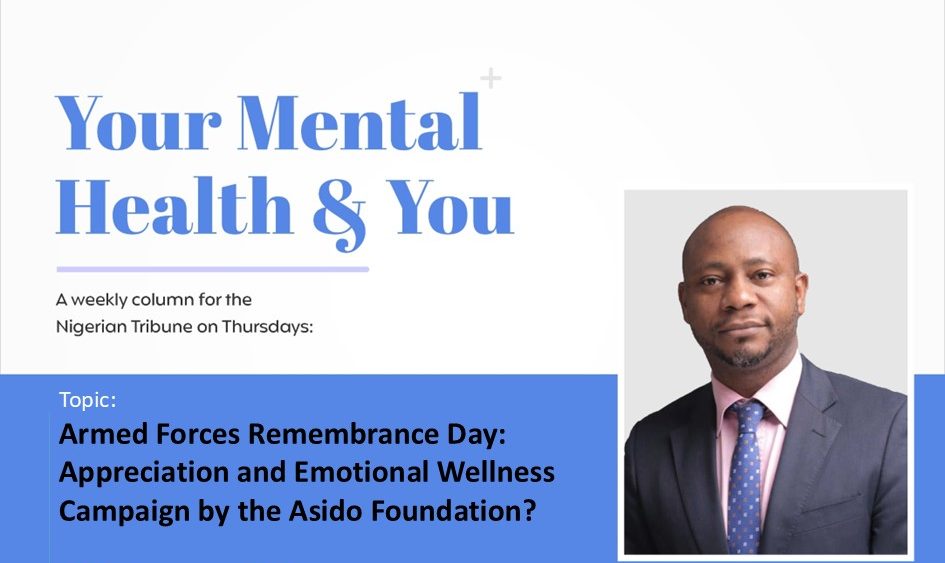Case 1: Captain Uzochukwu was involved in a forward clearing operation to dislodge some bandits that
had been terrorizing a major highway and causing fear and panic in neighbouring towns. His officers
and men carried out reconnaissance mission and provided the intelligence for the successful attack.
Unfortunately, he stepped on an improvised explosive device (IED) and lost a leg. He spent 5 months
recuperating in hospital, with at least 3 major surgeries performed on him. He was glad to be alive but he
was sad that his years of active military service was truncated by the injury. He took solace in the fact
that the operation was successful, and the bandits were dislodged and neutralized. His mother was
already worried sick about his chances of getting a good wife with his disability now….to his
consternation. He was proud of himself and his colleagues for the professional efficiency with which the
operation was conducted. He had no regrets for committing his life to service of the nation, against all
internal or external aggressors or enemies.
Case 2: Flight Lieutenant Musa was happy to fly a Tucano in the battle against insurgents in the north
east and north west regions of the country. He was gratified that the Airforce finally had the means and
equipment to inflict maximum damage on the enemies of state who were terrorizing and killing citizens.
In the aftermath of a successful operation and on their way back to base, the Tucano developed a
mechanical fault and all 5 officers on board crashed and died on the spot. His young widow was really in
distress, as she wondered how she will bring up their three young children by herself. She had always
feared this possibility but prayed it would never be her reality. She burst out in tears again, inconsolably
distraught.
Case 3: Commander Oyebola was actively involved in operations to curtail illegal refineries and
bunkering in the creeks of the Niger Delta. On one of their numerous night time sorties to intercept a
bunkering operation based on intelligence, a fire caused a pipeline explosion and he watched helplessly
as some of his men suffered severe burns and some eventually succumbed to their injuries. He
sometimes had nightmares about the episodes and trauma of that day, and he would vividly be hearing
their screams of pain and he would become very upset at his utter helplessness and sense of guilt for
escaping unscathed from the episode. Sometimes, his wife tells him that he screams out in his sleep,
with shouts of No, No, No, and he would wake up, drenched in sweat. His wife had suggested he sees a mental health professional for post traumatic stress disorder (PTSD) but he was not accepting any of that
rubbish. He was not a weakling, he would insist.
Discussion
The Armed Forces Remembrance Day, observed annually on the 15th of January, honours the sacrifices
and service of Nigeria’s armed forces, both past and present. These officers dedicate their lives to
safeguarding our nation’s peace and security, often at great personal and emotional cost. However, their
huge personal and familial sacrifices often go unnoticed and unappreciated by the majority of the
populace.
It is on account of this recognition that the Asido Foundation seeks to extend appreciation to our armed
forces in a manner that not only uplifts their spirits but also improves mental health awareness within
their ranks, while improving empathy and civic appreciation among Nigerians.
The campaign, which is billed to run for one month, from 15th January to 15 th February 2025, seeks to
encourage all Nigerian citizens to approach officers and men of the armed forces and appreciate and
thank them for their service. They can also take pictures with them and share on social media to
encourage more people to get involved in the appreciation campaign. Please tag, using the following
three dedicated hashtags (#asidoremembers #armedforcesremembranceday #celebrateoursoldiers).
It is also important to bring to the fore, the emotional turmoil and pain that our officers and their families
endure to keep all of us safe. Some of them pay the supreme price with their lives, such as Flt Lieutenant
Musa. Others lose a limb, such as Captain Uzochukwu; while yet another group have to live with the
emotional trauma of the battles they had been involved in, as we see with Commander Oyebola. There is
a lot of shame and stigma associated with mental health issues generally, but especially more so within
the Armed Forces.
Conclusion: This campaign by the Asido Foundation is laudable mental health advocacy. By celebrating
our armed forces and advocating for mental health inclusion, we contribute to creating a healthier, more
supportive environment for those who dedicate their lives to our nation’s safety. Together, we can make
the world a better place; one person at a time.
Dr Jibril Abdulmalik
Tribune Article for the column “Your Mental Health & You”
Thursday, 16th January 2025
Asido Foundation
www.asidofoundation.com
Asivuri Consulting
www.asivuri.com



